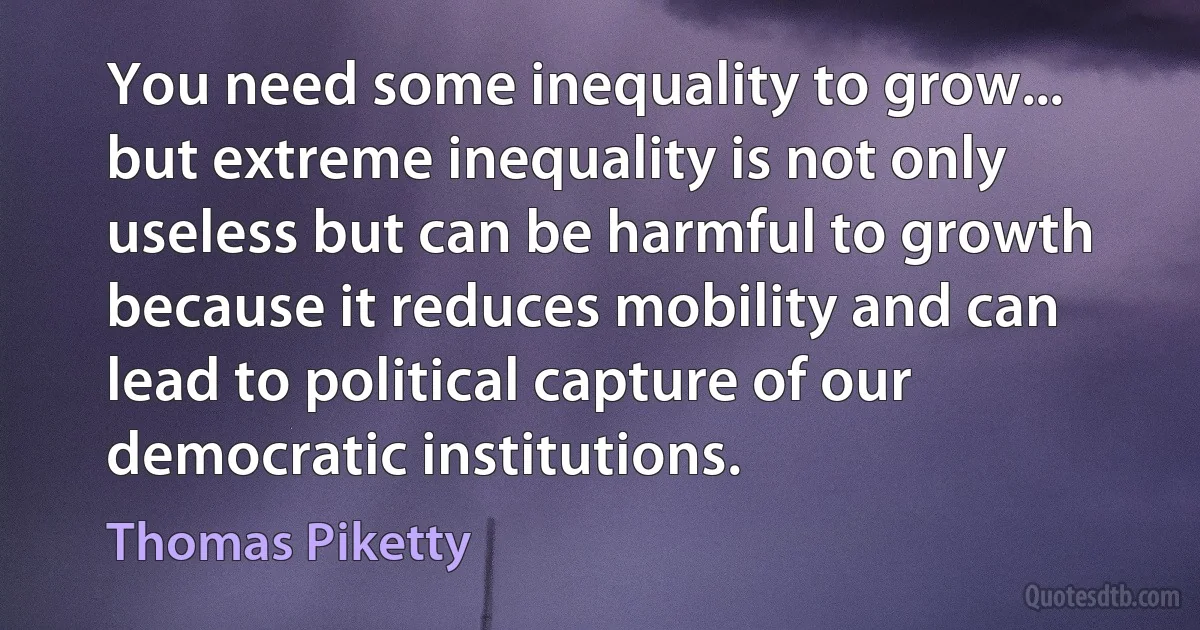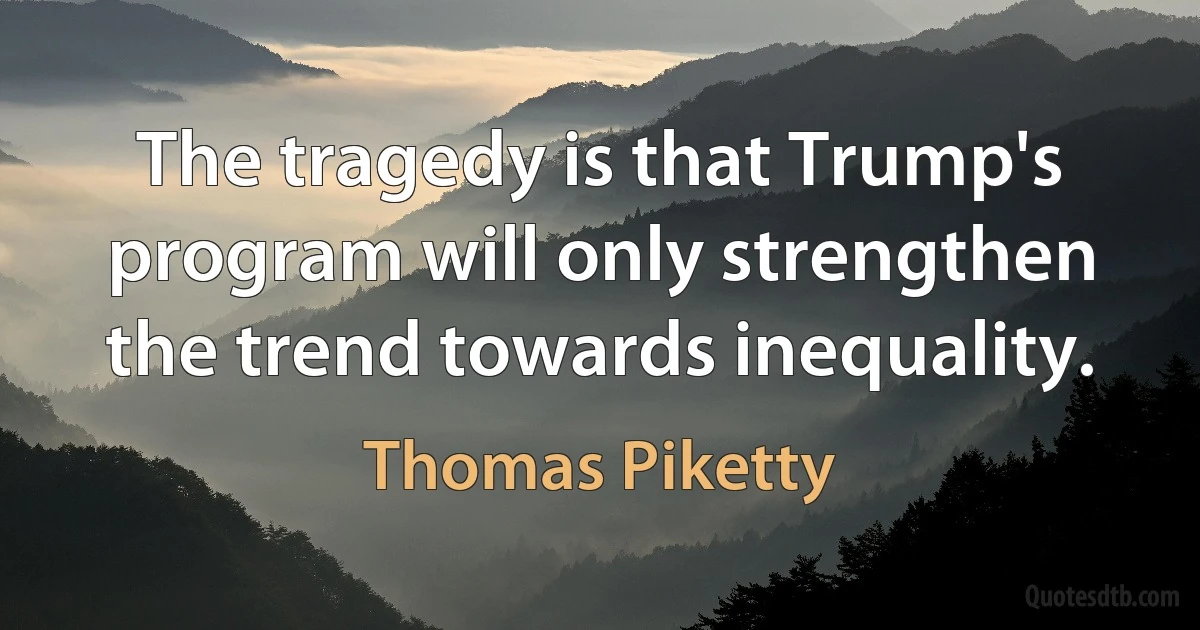Thomas Piketty quotes
Thomas Piketty is a French economist renowned for his work on wealth and income inequality. His influential book "Capital in the Twenty-First Century" ignited global debate on economic disparity. He advocates for progressive taxation and policies aimed at reducing inequality. Here are 69 of his quotes:
When the rate of return on capital exceeds the rate of growth of output and income, as it did in the nineteenth century and seems quite likely to do again in the twenty-first, capitalism automatically generates arbitrary and unsustainable inequalities that radically undermine the meritocratic values on which democratic societies are based.

Thomas Piketty
The distribution of wealth is one of today's most widely discussed and controversial issues. But what do we really know about its evolution over the long term? Do the dynamics of private capital accumulation inevitably lead to the concentration of wealth in ever fewer hands, as Karl Marx believed in the nineteenth century? Or do the balancing forces of growth, competition, and technological progress lead in later stages of development to reduced inequality and greater harmony among the classes, as Simon Kuznets thought in the twentieth century? What do we really know about how wealth and income have evolved since the eighteenth century, and what lessons can we derive from that knowledge for the century now under way?

Thomas Piketty
I am trying to put the distributional question and the study of long-run trends back at the heart of economic analysis. In that sense, I am pursuing a tradition which was pioneered by the economists of the 19th century, including David Ricardo and Karl Marx. One key difference is that I have a lot more historical data. With the help of Tony Atkinson, Emmanuel Saez, Facundo Alvaredo, Gilles Postel-Vinay, Jean-Laurent Rosenthal, Gabriel Zucman and many other scholars, we have been able to collect a unique set of data covering three centuries and over 20 countries. This is by far the most extensive database available in regard to the historical evolution of income and wealth. This book proposes an interpretative synthesis based upon this collective data collection project.

Thomas Piketty
The main lesson for Europe and the world is clear: as a matter of urgency, globalization must be fundamentally re-oriented. The main challenges of our times are the rise in inequality and global warming. We must therefore implement international treaties enabling us to respond to these challenges and to promote a model for fair and sustainable development. Agreements of a new type can, if necessary, include measures aimed at facilitating these exchanges. But the question of liberalizing trade should no longer be the main focus. Trade must once again become a means in the service of higher ends. It never should have become anything other than that.

Thomas Piketty
It is time to change the political discourse on globalization: trade is a good thing, but fair and sustainable development also demands public services, infrastructure, health and education systems. In turn, these themselves demand fair taxation systems. If we fail to deliver these, Trumpism will prevail.

Thomas Piketty
Whenever the rate of return on capital is significantly and durably higher than the growth rate of the economy, it is all but inevitable that inheritance (of fortunes accumulated in the past) predominates over saving (wealth accumulated in the present). ... The inequality r > g in one sense implies that the past tends to devour the future: wealth originating in the past automatically grows more rapidly, even without labor, than wealth stemming from work, which can be saved. Almost inevitably, this tends to give lasting disproportionate importance to inequalities created in the past, and therefore to inheritance.

Thomas Piketty
How do wealth-income and capital-output ratios evolve in the long run, and why? Until recently it was difficult to properly address this question, for one simple reason: national accounts were mostly about flows, not stocks. Economists had at their disposal a large body of historical series on flows of output, income and consumption – but limited data on stocks of assets and liabilities. When needed, for example for growth accounting exercises, estimates of capital stocks were typically obtained by cumulating past flows of saving and investment. This is fine for some purposes, but severely limits the set of questions one can ask.

Thomas Piketty
The overall importance of capital today, as noted, is not very different from what it was in the eighteenth century. Only its form has changed: capital was once mainly land but is now industrial, financial, and real estate. We also know that the concentration of wealth remains high, although it is noticeably less extreme than it was a century ago. The poorest half of the population still owns nothing, but there is now a patrimonial middle class that owns between a middle and a third of total wealth, and the wealthiest ten percent now own only-two thirds of what there is to own rather than nine-tenths.

Thomas Piketty
Thomas Piketty

Photo:
librairie mollat,
CC BY-SA 4.0
Occupation: French Economist
Born: May 7, 1971
Quotes count: 69
Wikipedia: Thomas Piketty











